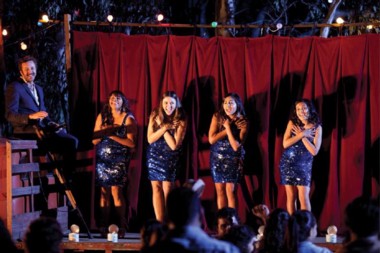Ah, springtime in New England. The time when a young man’s fancy turns to fly swatting. The time when flowers bloom and sinuses erupt. The time when a certain earthy aroma begins to waft over our towns, reminding us all that life in Western Mass. is still—despite the handful of colleges scattered across our Valley—largely a rural affair.
It took a while, but it’s a smell I’ve come to enjoy, and even look forward to, after some 15 years here. (I arrived via Brooklyn, where the closest approximation was a fetid N train in August, a comparison that heavily favors the manure.) And with each returning spring I’m glad for the reminder of our region’s agricultural heritage. This Friday and Saturday, a film comes to Shelburne Falls’ Memorial Hall to reach back in time and show us a bit of our own story.
That film is Root Hog or Die, a 1974 documentary film directed by Rawn Fulton. Drawing its title from an idiomatic expression of American self-reliance, Fulton’s film tells the stories of Franklin County’s old-time horse farmers, a group that in the mid-1970s seemed to be on their way out. But the film—newly restored and digitized in the Pothole Pictures screening—provides the backstory and historical context for the more recent boom in micro-farming that has seen the area explode with all manner of natural bounty. (When my wife and I were getting ready to buy our farm share this year, the only problem was deciding among the multitude of choices.) The CSAs, farmstands and organic markets that we take for granted today didn’t spring up fully formed, even if they were here by the time the Brooklynites descended.
To help elucidate the matter and strengthen our connection to the past, the director will be on hand with a panel of local farmers for the Saturday evening screening to discuss the evolution of local farming over the last four decades. They will be joined for a bit of local music by the fiddle and banjo outfit Whistlestop.
Also this week: Amherst Cinema continues with The Sapphires, a remarkable true story. It follows a group of smart young Australian Aboriginal women as they become unlikely stars in a very unlikely place. The group of four sisters and cousins has a knack for harmony, and while their love of singing keeps them going, the racism of the time holds them back—when they lose a pub contest to an abysmal (but white) competitor, it’s clear that there is little chance for them in the area. But then, with the help of Irish musician and soul aficionado Dave Lovelace—conveniently out of a job after sticking up for the group in the pub—The Cummeragunja Songbirds, now known as The Sapphires, hit the road to Melbourne, where auditions are being held for performers to entertain a new crowd: the American soldiers deployed to Vietnam. By the time the group finds its audience, they’ve become a sharp-as-a-crease soul machine. And against all odds, their story offers a new vantage point on a wartime era that most moviegoers probably thought they knew inside and out.
A final note this week: the May 10 live broadcast of Critically Acclaimed: An Evening With The Critics, covered in last week’s column, had to be postponed due to technical issues with the service provider for the live stream. At press time no new date had been set for the rescheduled screening, but Amherst Cinema will update its website as new information comes in. In the meantime, it’s back to reading the papers.•
Jack Brown can be reached at cinemadope@gmail.com.



